Graham Reid | | 3 min read
Creedence Clearwater Revival: Proud Mary
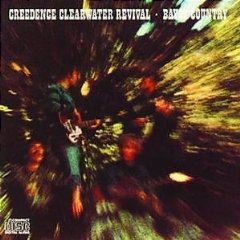
Consider the landscape of rock in 1969, the year of Woodstock and flower power. The big names were Jefferson Airplane and the Grateful Dead; Led Zeppelin had arrived with two thumping albums; there were supergroups (Blind Faith, CSN&Young) and Jimi Hendrix was channelling lightning.
Radio had moved to playing album tracks, many long and sprawling, and it wasn’t uncommon for an album to have a track that took up the full 20 minute running time of a whole side of vinyl. Iron Butterfly’s 17-minute In-A-Gadda-Da-Vida of the previous year had paved the way, and had been a top 30 hit in the US.
In England prog-rock bands such as Genesis were starting to make a name for themselves, David Bowie released Space Oddity, and Pink Floyd were starting to stretch out in marathon pieces.
It was a period of dark acid dreams, very long songs and Mick Jagger reading a poem by Shelley in Hyde Park as a tribute to their late guitarist and founder Brian Jones.
And into this world came a band that seemed to run counter to every known fashion: Creedence Clearwater Revival out of San Francisco who specialised in short sharp rock’n’roll radio songs, sang about the bayou and paddle steamers, and were signed to a jazz label.
The previous year they had scored a radio hit with their long version of the old rockabilly song Suzie Q lifted from their self-titled debut album, but it was with Bayou Country in ‘69 they established themselves.
Bayou Country - released in January and propelled into public consciousness by the hit Proud Mary - was essentially CCR’s live set. It opened with the funky-rock of Born on the Bayou and closed with their boogie-out Keep on Chooglin’ which stretched towards the eight-minute mark.
Between times you can hear a band that had perfected its tight sound by playing in garages and then clubs, a band that had abandoned any attempt at the British sound which had forged so many American groups of the mid 60s, and had struck out into an imagined America that singer-songwriter John Fogerty conjured up in three minute songs.
“Rock’n’roll is Southern,” California-raised Fogerty has said, “and that’s why I’m Southern. Because what I learned from was Southern.”
Bayou Country bristles with musical ideas drawn from that Southern well, but also harks back to a rock’n’roll past which was rapidly receding and being written over by other bands in ‘69: CCR cover Little Richards’ throat-searing rocker Good Golly Miss Molly, and Graveyard Train acknowledges bluesman Howlin’ Wolf. And of course it included the as-near-as-perfect Proud Mary.
Born on the Bayou has been hailed as an early example of swamp rock and became one of many CCR signature songs
“I didn’t want Bayou Country to be a concept album,” said Fogerty last year, “I just wanted to be in this place, and I knew I was a a-hold of something with those songs [Proud Mary, Born on the Bayou and Bootleg] . . . That album really stated who we were, like Nirvana with Nevermind. After Bayou Country I began to feel I had the freedom, or the power, to do what I wanted to do.”
Someone once said that if you can recognise a singer or guitarist from the first few seconds they will probably be in the Rock and Roll Hall of Fame -- and CCR were inducted in ‘93.
Between their peak period in the early 70s and then however the band had fallen apart in disarray and lawsuits, and for decades John Fogerty refused to play the hits that had made his name.
It would be unfair however to characterise CCR as exclusively Fogerty’s vehicle because that skin-tight sound from his brother Tom (guitar), bassist Stu Cook and drummer Doug Clifford was an essential part of the group’s sound and success.
“Bayou Country is my favourite Creedence album,“ said Cook some years ago, “because we had played those songs live and because we were still a band.”
And ironically, a band that seemed to be going in exactly the opposite direction to most others in ‘69.
These Essential Elsewhere pages deliberately point to albums which you might not have thought of, or have even heard . . .
But they might just open a door into a new kind of music, or an artist you didn't know of. Or someone you may have thought was just plain boring.
But here is the way into a new/interesting/different music . . .
Jump in.
The deep end won't be out of your depth . . .

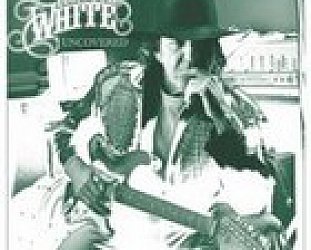

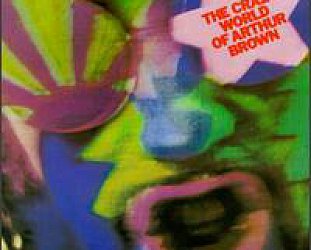
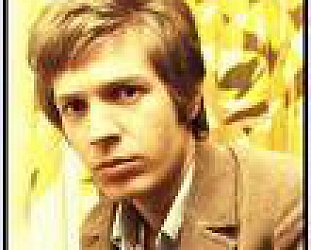

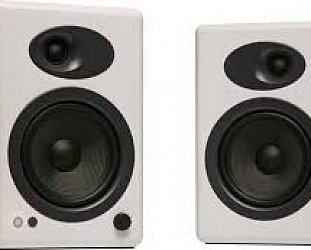
post a comment